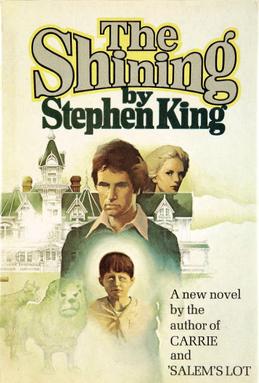Stephen King is an untalented hack who couldn’t write real literature if his life depended on it. At least, that’s what some of his critics say. But I base my judgment on what someone can teach me, not what the English lit professors and book critics think, and Stephen King has taught me a great deal about writing, the human condition, and life in general.
Much of this wisdom came from a particular book (On Writing) and it has been valuable advice that I have never forgotten. What is interesting is that much of it can be applied to content marketing as well as writing fiction. Here are a few select quotes that have a lot to say about both.
Why Hiring a Talented Writer isn’t enough
“Talent is cheaper than table salt. What separates the talented individual from the successful one is a lot of hard work.”
Just as many people could write a short story if they sat down to do it, there are many people out there who could write content for you. But you don’t just want any content. You want content that has been created by a talented writer, but more importantly, has been polished, checked, edited, re-checked and then sent to an outside editor for re-editing.
If a writer is unwilling to work hard to make your content the best out there, it doesn’t matter how much raw talent went into writing the piece – it is still going to suck.
How to Write Content People Will Actually Read
“Just by looking at the text you can see if it is going to be easy or hard to read it. Easy stuff contains lots of short paragraphs and white space.”
This is something that writers at Media Shower are encouraged to keep in mind, and I’d like to think that if Mr. King had been talking about content marketing, he would have included relevant, high-quality pictures in there as well. If you want people to read your content, and not run from your page as fast as their little internet legs will carry them, you don’t want to put thick, intimidating blocks of text in front of them.
It takes an experienced writer to know how to craft paragraphs of the right length and when to add pictures because if the purpose of your content is to engage the reader, you want to make it as easy as possible for them to browse your site.
How to Edit Your Content
“Write a first draft. Get away from it for a bit and do something else. Then come back and read it over. Fix the spelling mistakes and pick up inconsistencies. You need to revise for length. Omit needless words. Cut the bull*&%$. Cut the fluff from your writing.”

Sometimes you learn more from one book than from your entire college creative writing course.
Mr. King recommends setting your work aside for six weeks before you edit. As a writer of content for the web, you aren’t going to have six weeks to allow your article to sit around before you edit it. Deadlines don’t extend much farther than three days on average, and many freelancers simply submit their work immediately after finishing it.
This is something that I struggled with in my early writing career. I suffered from Egotism Disease, which is a condition that presents with the idea that you are so talented you don’t need to follow the rules that all of the other writers have to follow. I quickly learned that my submitted work was full of poorly written sentences, unneeded words, typos, misspellings and grammar issues that would have made my high school English teacher cry.
As I got more experienced at my craft, these things improved, but never completely disappeared, and I learned that in order to submit work that was as flawless as I could make it, I had to do a two-step process. First, I needed to complete the work as soon as it was assigned and edit it when the deadline was approaching. Second, I began to use a program to read my piece aloud to me as I followed along, which gave me a fresh perspective and helped me see where it needed improvement.

Cut the fat and reduce your piece by 10%.
Mr. King’s rule is that a second draft should be ten percent lighter than the first. If you cut the fat from your article, that’s usually just about right.
Always Find Ways to Improve Your Craft
“If you want to be a writer, you must do two things above all others: read a lot and write a lot. There’s no way around these two things that I’m aware of, no shortcut.”
It doesn’t matter if you are a plumber, a police officer, a pick-pocket or a writer of web content; you should never be satisfied with your skill level. I like to think of writing as a life-long apprenticeship and the best way to improve is to read finely crafted internet content.
This doesn’t include the Facebook posts of your ex-girlfriend, nor does it mean randomly finding stuff to read online. It means actually seeking out high-quality content and looking for ways that you can improve your own writing. Never be satisfied with where you are. If you have room for improvement (and you do), then do everything you can to improve as quickly as you are able.
I don’t know that I’ll ever get to the skill level of Stephen King in either my fiction or non-fiction writing. I doubt that I started with as much talent as he did, but I do know that by following his advice, I have become a good writer with the potential to become even better. I don’t know much about what defines “real” literature, but I do know that every time I re-read a Stephen King novel, I remember why I chose this path in the first place, and to me, that makes him worth reading.
Want to learn even more about how to make your content marketing even more effective? Visit our Content Marketing Academy and start getting better results today!
Gabriel Legend is an expert writer with the ability to walk the line between informative, compelling and optimized for search.

